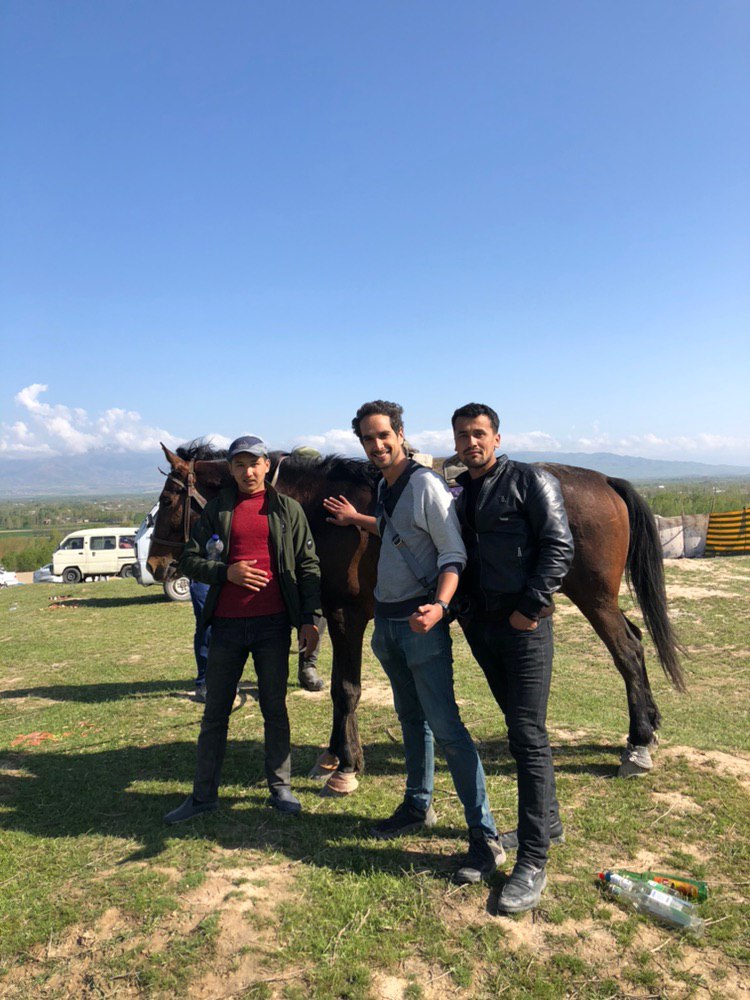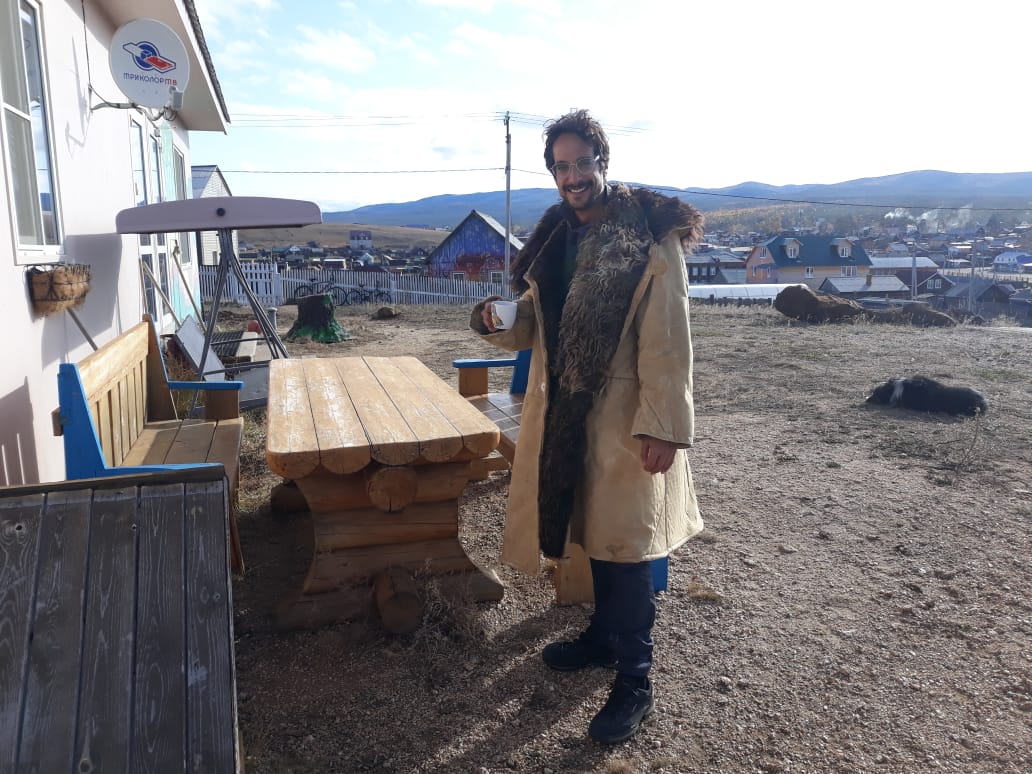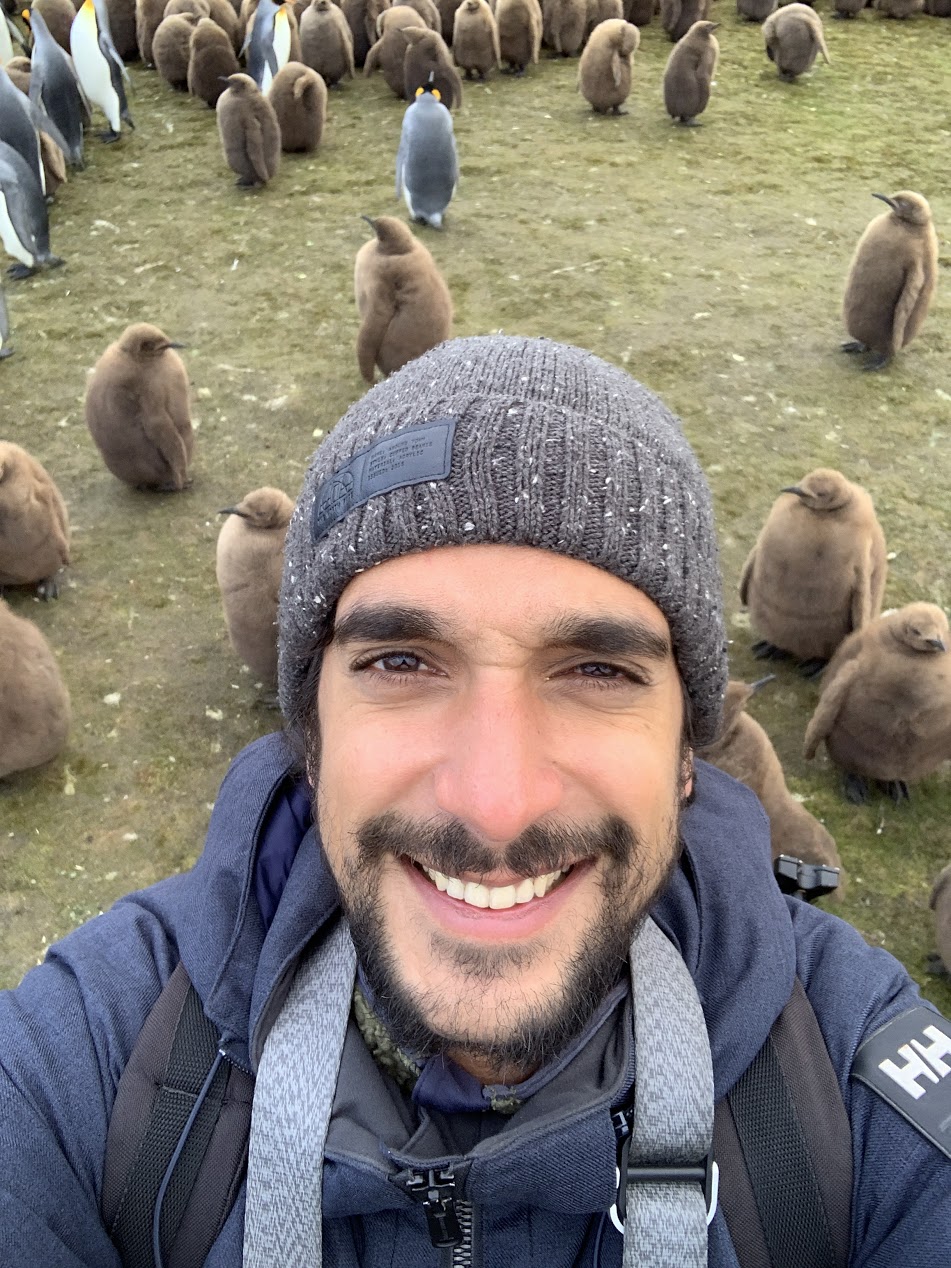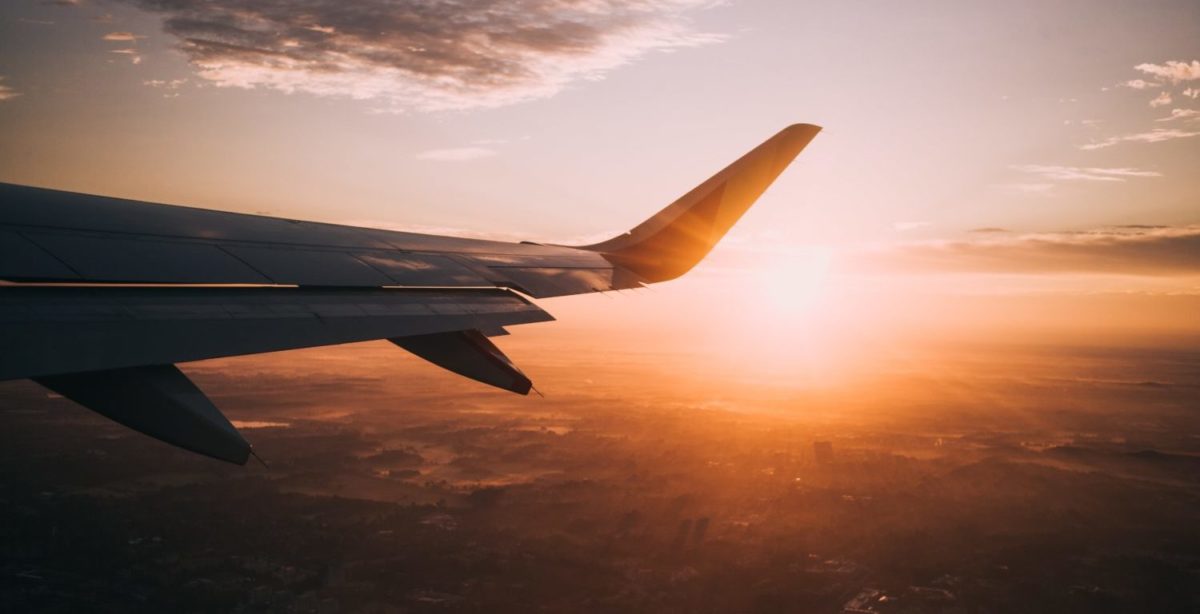Back in 2019 when COVID-19 was nothing and then only a whisper, Sebastian Modak crisscrossed the globe several times over, flying 120,000 miles on 40 airlines before the year ended. He watched a solar eclipse from northern Chile, spent time in Siberia, sweated his bodyweight in Senegal, watched hundreds of men on horseback chase down a headless goat carcass in a field in Uzbekistan, and made feathered friends on the Falkland Islands.
In 2020, Modak hardly flew 1,000 miles, spending more time on the seat of his bike than in a plane or somewhere abroad. For perhaps the first time in his life, he didn't leave the country or use his passport at all.
As the New York Times' most recent 52 Places traveler – yes, he really went somewhere new for each week of the year – and a seasoned travel journalist, Modak was thrust into opposite ends of the travel spectrum: To have, if it's possible, almost too much of it … only to lose it immediately afterward.
With travel slowly resuming and countries around the world nudging their borders back open, Modak spoke with Thrifty Traveler about spending a year (mostly) at home so soon after a year of constant motion, and how the pandemic forced him to think even harder about how he travels and his own identity, which has been built around travel almost since birth.
“It does feel like we're turning a corner,” he said in an interview last month. “I hope we don't jump the gun too much.”
This interview has been edited for clarity and brevity.
More than a year later, what places from your 2019 travels do you remember the clearest? What memories and moments still stick out?
It's always interesting, with hindsight, what memories stick with you. There's a lot of mundane stuff that I remember, like the Siberian Airlines lounge in Moscow. Or I remember the taxi driver I had in Uzbekistan.
But the biggest memories that I treasure the most are the places where I felt like I really connected with certain people. There's a town in Denmark called Aalborg that I went to which, I think on the surface, would be pretty unremarkable to most travelers. But I just had such a good time, partially because I met this woman who just canceled all her plans, called into work … and just showed me around for three days. She took me to have dinner with her family and introduced me to her friends. That sticks with me.
There's the guy who I became very good friends with in Samarkand, Uzbekistan. He took me to go see kopkari, the dead goat polo-type game. We still send Whatsapps every once in a while.

There's the guy who took care of the church on this island in Siberia who I stayed with in his guest house. He saw me not as a New York Times journalist but just as a solo traveler who was curious about where he was from. So he went out of his way to just show me around. He would tell me to get into his Jeep, and we would drive into the middle of nowhere and he'd just drop me off and just be like: “Bye!” just to set me up for a solo hike back to town. He knew how to set me up for adventure.
The woman who ran the bakery in the small surfer town in Panama … it's all people, when I think back. That's really when it hits home.
I saw a solar eclipse in Chile. Incredible. Life-changing. But I would say the friendships that I made – even the really fleeting ones – are going to stick with me longer than that solar eclipse.
Where are you hungry to revisit from your 2019 travels once you can?
There are very few that I wouldn't want to immediately go back to. In fact, I'm having a hard time thinking of a single one.
In terms of places that I really want to go back to: Dakar, Senegal. I love that city. Within the first few days, I was like: I could totally live here. Easy.
Plovdiv, Bulgaria, is another town that I, through the people I met and also just the experience I had there. It was another place where I could stay for a few months for sure.
Puerto Rico as well, which I loved but it's a place I'd love to go back with my partner.
When I think about places that I want to go back to, it's either places that I want to go back to because I want to spend more time. And when I say more time, I mean months. Siberia, honestly, I would spend a few months there. I want to see more of Uzbekistan. These are places I want to see deeper.

Or they're places that I want to go back to with my partner and show her, and have experiences with her or have experiences with someone else that I can share, the kind of experiences that I loved solo.
None of them are like “I just want to go back to such and such bar or such and such restaurant.” Everything that's bringing me back is so that I can peel back one more layer of a place.
Take me back to the onset of the pandemic. How did that unfold for you?
I got back in December, a few days before Christmas. I was ready to take a break and hang out a bit in New York. And that break ended up being much longer than I thought it would.
This is the longest I've gone now without leaving the country – or without leaving any country. I grew up moving my whole life and was always traveling as a kid. The last trip I did internationally was in February 2020.
Did you feel a sense of whiplash, going from a year of constant travel to almost none at all?
I felt it a lot at the beginning, even before the pandemic. I had developed this rhythm to my life over the course of 52 places that suddenly being back at home with my partner and my cat was just like: “Wait, what?” It was like waking up from a dream.
I think it was hard to adjust at first. I would wake up in the morning and be like: Where am I? What flight do I have to catch? Am I on deadline?” And then I'd be like… I literally have nothing to do and can be at home. I can chill.
I think I started getting used to it. And then I'd say … probably six months in or so was when I really started getting restless. I don't know, you get this feeling like time is being wasted, right? It's the wrong way to look at it, 100%. It reflects how privileged and spoiled I am to have traveled as much as I have that I can't go six months without being like “I'm wasting precious time to go see things and do things.”
It forced me to be like, you know what? There's something nice about walking around my block every day. Now I'm starting to notice things about my own neighborhood that I didn't even see before or didn't notice or didn't spend the time to notice. Maybe it's OK that I'm spending a Friday night at home playing board games with my partner instead of traveling somewhere for the weekend.
It was definitely an adjustment. I think my first reaction was the traveler's natural reaction: “Where can I go? How can I figure out how to bend these rules to get somewhere? Maybe I can go rent a car and just drive into the woods or whatever, just figure out something.”
I needed to check my privilege and figure out how to adjust to this just like everybody else is. Time is passing, but it's not a ton of time and hopefully, I'll be able to do what I love to do with even more thought and consciousness when it ends.
In a recap of your 52 places year, you wrote: “Traveling is an incredible privilege, and it's mind-boggling how easy it is to cross the planet.” Within weeks, that was no longer the case. How did you reckon with that?
I struggled with this. When the coronavirus first started spreading, the first reaction – and you can debate whether it was effective or not – was to close borders, stop all travel. With that came this gut, knee-jerk reaction to blame globalization, to blame the ease of mobility around the world and the porous borders around the world for the spread of the virus. It led to a lot of – and we're seeing it now – a lot of xenophobia and racism around it.
I understand the rationale behind that kind of reaction. But at the same time, from day one, I was also thinking: Sure, but it's also that interconnectedness and that free flow of information that's going to get us out of this thing, in sharing information in the development of vaccines and getting vaccines around the world. We're seeing that to be true. And we're seeing what happens when it isn't true, when parts of the world get excluded from vaccine rollout.
We are going to get to a place where, hopefully, we realize that. I still believe that is still going to be just as easy, soon, to get around the world – and just as important that we keep doing it.
I think there is some validity there, especially when you're talking about climate change. Maybe we don't need to fly consultants every week to go to a meeting in Kansas City. But should we stop travel altogether? I would say absolutely not. That's how you get all the forces of xenophobia and nationalism and nativism that we see on the rise around the world.

I think it's important that we continue to travel. I think it's super important that it remains accessible to people to do so, because I think the power of travel to open minds and exchange ideas and create relationships … those are the things that stuck with me the most from my 52 places trip more than any site or landmark that I saw.
This past year and a half nightmare that we've been living through, it should have taught us not that we should hunker down in our shells and weather out the storm, but that we really are all in this together. If something happens in one place, it's going to happen everywhere.
You've built not just your career but your entire life around travel. How did that affect you and how you view yourself?
It is a big part of my identity. When someone asks me where I'm from, my default answer is: “It's complicated” or “Nowhere.” I just didn't have that part of my identity to tap into for the past year. I was very much stationary.
I'm grateful for being healthy, for having my partner through it all. And that was nice too, because we went from a year where I was gone to a year where we were very much together.
It made me look at things in a different way. It made me find new hobbies that weren't so reliant on travel. I got really into cycling because I felt like it hit at some of the adventure, a sense of seeing new things and experiencing new things that I loved about traveling further afield.
It really just taught me that I've got to be able to define myself by more than being mobile, being nomadic, being uprooted, which I think for the longest time, I defined myself as.
With both 2019 and 2020 now in hindsight, how will it change how you travel?
I will be traveling more intentionally when I come out of this … that I'll be thinking more about my actions and how I can travel responsibly and how I can travel with more intention, less just for the sake of it.
It reinforced that the stories that I wrote that dealt with people, meeting people, and the exchanges and interactions that I had were the most valuable. Versus covering a place and saying “this is some new thing here and it's cool and you should check it out,” which happened a few times, too.
But I think the personal nature of the connections between people, it's made me think just how important that is as a form of storytelling. I still get messages from people today saying that, that my focus on meeting people and the serendipity that came out of those situations really resonated with them and changed the way they want to travel. That's the best feedback I can get.
I feel like I'm in the business of writing good news. In the sea of horrible news, there's actually some really great stuff going on. And it usually happens far away from the headlines, when you're face-to-face with someone having a beer in the middle of Uzbekistan somewhere.
Do you worry that after a year-plus of social distancing, making those personal connections you treasure is going to be harder when you get back out there?
I do, I really do. And I think it will. I think it's going to take a while.
Now, thinking about it, I think that was part of the reason why I wasn't interested in planning a big trip during a pandemic. I just wasn't interested in flying halfway across the world to isolate myself on a beach – no matter how nice that beach was. That's not why I travel.
Especially solo traveling. The best part of solo travel is meeting some stranger and the next thing you know you're invited to dinner at their house somewhere. I think that's going to be hard to get back to. I think we'll get there.

Even when we know it's safe to interact, I think there's going to be this initial hesitation by habit. During 52 places, people would literally hand their plate towards me that they had been eating lunch from and I would take a scoop out of it with a spoon from a complete stranger. Imagine that happening now! It's not going to happen for a while.
But then I don't know. We are very adaptable creatures, and I think we're also very good at collective amnesia and going on with our lives. Maybe there will come a point where we'll slip back into it. I just think it's going to be a little weird at first.
Even after our whole world is vaccinated, it's going to take a while. I think everyone's gonna have a little bit of PTSD from this last year.
Throughout the pandemic, did you book any big trip or score some great deal for the sake of having something to look forward to?
No. And I saw people who did, and I understand the temptation. I saw people who were like: “I saw a fare to Tokyo for $300 and I just bought it.” I think it was a fare for a month ago, so I don't think my friends took that trip.
I get the temptation, right. It's the idea that you're looking forward to something. It feels like it gives you a North Star: We'll be out of this by then, and I can celebrate with a trip to Tokyo or wherever else.
But I didn't feel that. I don't know, I never pulled the trigger in that way.
I just got more ambitious about what I could do safely. My partner and I rode our bikes into the Catskills over the course of two days. We rode over the course of two days 150 miles up to the mountains and stayed on a farm for two days and then rode our bikes back to New York City.
That's not something I would have ever thought of doing before. If I had that time, I'd be booking a flight to the Azores or something. So it was nice to challenge myself in new ways and find new ways to find joy and adventure within the confines of the pandemic.
What about now? Are you looking ahead and planning?
I just recently got my first vaccine, which is exciting (Modak has since been fully vaccinated). It's partially that, as well as seeing the news and the latest numbers … today was actually the first day where I said: “Maybe we should start looking for something to do later in the year.”
I'd love to get back to Japan. My parents live in Dubai, so it'd be nice to see them and maybe build a trip around that. I've never been to Lebanon, maybe I'll make it over to Beirut or go to Oman. For the first time, I've started thinking: “What can we do this year? I'd like to get out of the country at least once this year.
As someone who traveled more in a year than most do in a lifetime, what did you learn about the art of booking travel?
If I could show you the document we had for booking, it was bonkers. And to be fair, I did have help. It was like we were basically always looking to book a flight. We didn't book everything upfront. That would be crazy: If one thing went wrong, it would just be a crazy domino effect. So we were booking about two weeks out, besides big events: the solar eclipse, a wine festival in Switzerland – things we knew would sell out.
I had very little control over what airline I was flying. I wish I could have flown Star Alliance all year – then I'd have ridiculous miles. But we were really so beholden to scheduling and budgets, because the Times doesn't accept freebies. So it wasn't like I was flying business class around the world. I was in basic economy half the time and flying European budget airlines!
It made me much more accommodating to last-minute stuff. It worked out well most of the time. So it made me a lot more at ease with that idea of going on the fly and figuring it out. Sometimes, I would not even know what hotel I was staying at when I got on my plane to the next place.
It's OK to not have everything planned out. In fact, I think some of the best stuff happens when you're going on the fly.
But it reinforced something for me in terms of the places I'm looking to stay in. It's pretty obvious to me now that more expensive does not always mean better. And “cheap” does not always mean sharing a hostel with four dirty backpackers.
Last question: Of the 40 airlines you flew in 2019, which was the best? And worst?
Best is not surprising. For me, it's still Singapore Airlines. I like Cathay Pacific. It confirmed my long-held belief that basically, any airline in this country can't hold a candle to airlines in Asia.
Worst? Man, I had a rough time with S7 (a Russian airline and member of the Oneworld alliance). I flew them two times, too.
You can see more of Sebastian Modak's work at SebastianModak.com
All photos courtesy of Sebastian Modak





